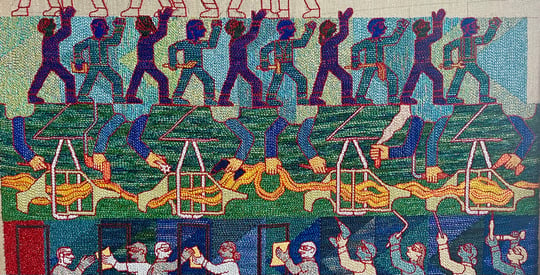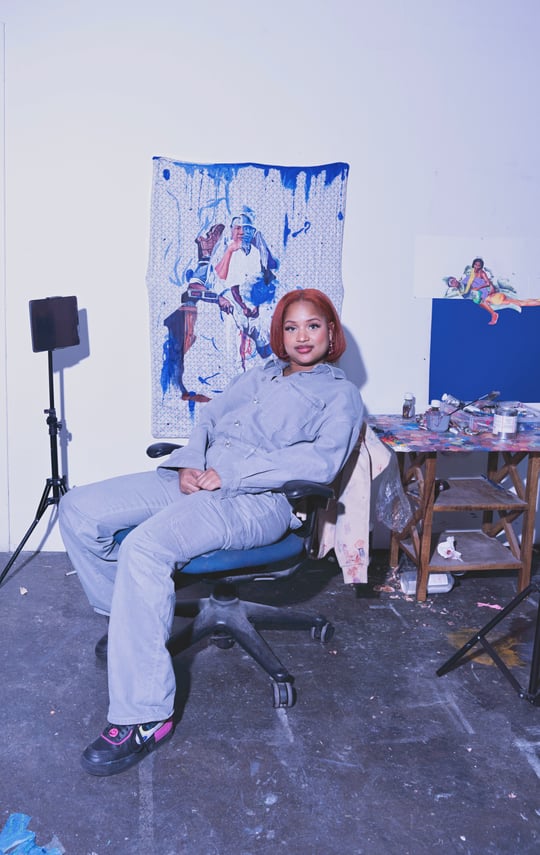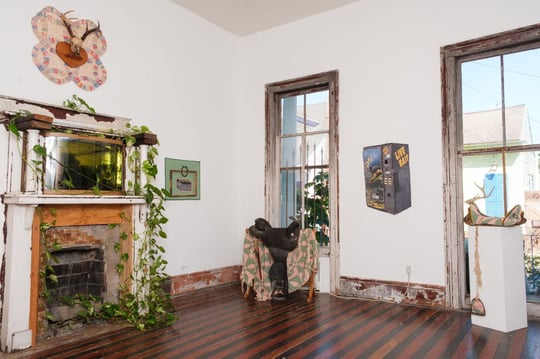
Molly Brodak is the author of the chapbooks, Instructions for a Painting and The Flood, and the full length collection, A Little Middle of the Night, winner of the 2009 Iowa Poetry Prize. She is currently a Creative Writing Fellow in Poetry at Emory University.
Her newest release, Essays on Parts of Day (Horse Less Press), takes the reader through the different moods and situations that arise at various parts of the day. From Darkness to Before Clouds to Day and beyond. There is an undercurrent of danger in the book, like something is lurking the shadows that never reveals itself. There is also a sober sense of love, like love is present, but the rug won’t get swept out from under the feet of experience again. I talked with Molly through email about her new book and her fellowship at Emory.
Scott Daughtridge: I’m fascinated by people’s biographies. When did you start writing poetry and when did you decide you wanted to be a poet? When was the first time someone said they wanted to publish your work and what was that like for you?
Molly Brodak: I had been writing poems since I was a child, I just didn’t know what they were. I didn’t take it seriously until I was in college—I first went to art school and studied Illustration, but then took a poetry class and decided I really would rather write. I transferred to Oakland University I started really looking at what I had been doing this whole time.
I don’t remember the first place that accepted a poem of mine for publication—it was around that time in college—but it definitely was exciting. I distinctly remember the day I found out I won the Iowa Poetry Prize for my first book. I was cleaning the house and I got a phone call from an unknown number and was really annoyed. When I picked up, I really thought someone was messing with me, so I got even more irritated and told the editor of the Iowa Press to go to hell. She called me back later and I couldn’t believe it was real, and I felt so bad for yelling at her. She was very understanding though.
SD: You are from Michigan, you got your BA from Oakland University, MFA from West Virginia University, you taught at Augusta State University and now you’re a Fellow at Emory. To some people, that is a lot of relocating. Does your location play a role in your poetry? If so, how has Atlanta influenced your work? If not, how do you keep a sense of consistency in different environments?
MB: I did relocate a lot because I am used to relocating I think—I grew up moving around a lot. In fact, I have never lived anywhere for more than 4 years. Location definitely influences my work. I think about my surroundings a lot, and I often feel like the edge of my self extends beyond the boundary of my body and into the places I am, so I feel like I am living not in a location but as part of one.
I often don’t write directly about a place until after I have left it though. I feel like I need that distance of reflection. I really love Atlanta and have made a commitment to stay here for a while. I like the size and scope of it, and I love all the parks. It has influenced me in the sense that it has made me pleased to live in a city again. Living in Augusta, or Savannah, or West Virginia, or even Detroit, sometimes you get the feeling that people hate you and don’t want you there, in their city or place. I don’t feel that way here. I’ve never been made to feel like an outsider in Atlanta. I have to admit too that I love the city’s official emblem, the phoenix—I feel personally akin to that symbol.
SD: Your newest work, Essays on Parts of Day, was released in January. Qualitatively, how does writing a chapbook compare to writing full-length books?
MB: Writing a chapbook feels different from a book. The mood of it is hard to explain, but I would say it’s kind of sweeter. There’s less pressure, since it feels like a chapbook will not come to define you like a book would. It’s freeing and more intimate somehow, the smallness of it.
SD: I love the shifting of moods in your new book, from subtle danger to a subdued sense of love and delight. Can you talk about how the poems in this collection relate to the title?
MB: Thank you for describing the moods like that, I think that is a really good description! This chapbook is sort of odd in how it was made. I had these three long, unrelated poems that I suddenly decided went together. They were written at very different times, but because they are all long poems, they have camaraderie. In the same way a short strip of metal is very stiff but a long strip of the same metal is flexible, long poems can’t help but have range and variety in feeling, just because there is more to them. It can be hard to “do” anything with a long poem because they can be hard to get published in journals, and they sometimes stick out in manuscripts, so I am happy to have them together in this chapbook.
The title poem was written at a time when I was routinely trespassing in an abandoned house in Augusta where I used to live. I used to go there and just look around, even though it was sort of unsafe. I like ruins because there’s something honest about them. They tell their story in a way that a maintained place can’t. I wrote that poem at different points during the day, reflecting on the mood of the moment.
SD: I’m interested in your role as a professor as well as a poet. How do you approach the work of your students? Are you more hands on in shaping their voices or do you let them figure it out on their own?
MB: Mostly you have to get out of the way of your students. When I started teaching, I realize now, I was overteaching. I was just so happy to be doing it—I really love teaching and I get so excited about sharing ideas and praising good writing or offering criticism. Now I realize that often saying less allows them to have the experience of learning something by figuring it out—not by being told. I like to work one-on-one throughout the semester with my students, often giving them “private” assignments or assigning them poets to research on their own. Learning, really, when you get right down to it, is always private. You can learn in a group but no one really learns “as” a group. I try to encourage my students to really use the class, to see it as their own class, and not get sucked into groupthink that can water down radical creativity in workshop situations. I feel very grateful to be teaching—it allows me to learn constantly and I love learning. It’s the best job I can imagine for me.





